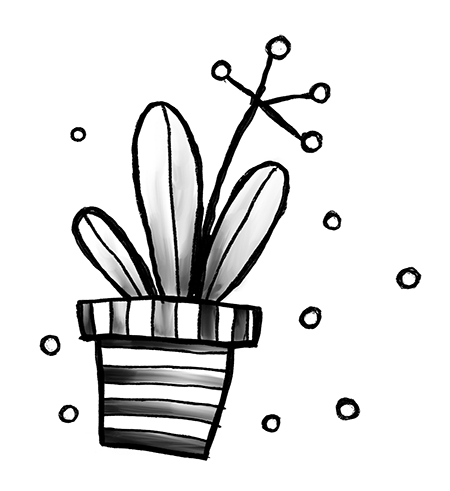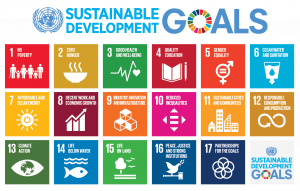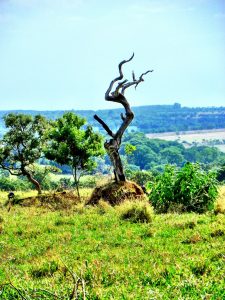Sustainable Development in Evolving Curricula – “Sustainable Wednesday Blog Series, Part 4”

Universities of Applied Sciences are committed to the Rector’s Conference of Finnish Universities of Applied Sciences Arene‘s programme for sustainable development and responsibility. The common goal of universities of applied sciences is to be sustainable, responsible and carbon neutral by 2030.
This blog series elaborates on how Humak takes into account the principles of sustainable development in the areas of education, RDI work as well as management and personnel competence from an ecological, social and cultural point of view. Additionally, the sustainable development program involves an annual calculation of our carbon footprint, through which Humak strives to reduce its own impact on the climate. In the blog series, we also present the basics of the calculation and the evolution of Humak’s carbon footprint. Blog posts will be published about once a week on Wednesdays until May 2022. The Sustainable Wednesday blog series continues with blog number four: Sustainable Development in Evolving Curricula.
Part 1: Towards a More Sustainable and Responsible Humak
Part 2: Building a Carbon Neutral Humak
Part 3: RDI Work as a Builder of a Sustainable World
Blog 4: “Sustainable Development in Evolving Curricula”
Understanding sustainable development has been recognized, both nationally and internationally, as one of the most significant needs for education reform in the 21st century. The UN Sustainable Development Goals aim to achieve a better and more sustainable future for all. The principles emphasize global challenges, including poverty, equality, climate change, peace and justice. These 17 principles show that sustainable development is a complex and wide-ranging phenomenon to which the education sector must provide knowledge, skills and attitude training at all levels.
Finnish Higher Education and Sustainable Development
At the beginning of 2022, Finnish universities of applied sciences took up the challenges of sustainable development by renewing their common competencies in all fields of education. The reform is based on the recommendations issued by Arene in 2010 (The Rectors’ Conference of Finnish Universities of Applied Sciences Arene 2010). The expression of teaching goals and competence requirements is always a value-based description that expresses the timely needs. Arene’s new competence description (Arene 2022) adds sustainable development to the list of competencies.

The proposal submitted to Finnish universities of applied sciences emphasizes knowing and promoting the principles of sustainable development and acting responsibly as a professional and as a member of society. The goals also emphasize competence related to one’s own field as well as the understanding and multi-facetedness of sustainability challenges (Arene 2022).
All higher education institutions have an obligation to promote sustainable development, and each institution resolves this obligation in its own way. Some universities of applied sciences offer courses related to the subject. Others include the themes of sustainable development into their activities in other ways.
What About Humak?
Humak’s curriculum reform is based on consultations with students, staff, and working life. There has been a surprising consensus that sustainable development should be more clearly highlighted in the new curriculum. Themes of sustainable development are offered as part of Humak’s joint studies, so that Humak’s special competencies are emphasized in the courses. The aim is also to plan joint studies so that they can be carried out independently and/or in groups online.
According to the preliminary plan, Humak will have a new study module focusing on sustainability, during which the student will learn the principles of sustainability and is able to implement those principles in different situations and contexts. The goal is that the student is also able to come up with solutions and operating models that support sustainable development both in their work and in their daily life. Humak’s own “twist” on these sustainability courses lies in emphasizing specific social and cultural sustainability challenges and identifying the diversity of the issues and problems related to them.

In Conclusion
Humak’s curriculum reform seeks to take into account both national and international goals for sustainable development in a variety of ways. The Finnish field of universities of applied sciences has raised the teaching of sustainable development values and related competencies as one of the common goals of higher education. As we know, knowledge, skills and values are needed to support change. Higher education institutions have a key role to play in this.
References:
The Rectors’ Conference of Finnish Universities of Applied Sciences Arene 2010. Accessed 13.4.2022. http://www.arene.fi/wp-content/uploads/Raportit/2018/arene_nqf.pdf (in Finnish)
Arene 2022. Accessed 13.4.2022. https://www.arene.fi/wp-content/uploads/Raportit/2022/Kompetenssit/RECOMMENDATION%20ON%20THE%20SHARED%20COMPETENCES%20OF%20UNIVERSITIES%20OF%20APPLIED%20SCIENCES%20AND%20THEIR%20APPLICATION.pdf?_t=1642539550
Sustainable development goals. Accessed 13.4.2022. https://www.un.org/sustainabledevelopment/sustainable-development-goals/
Text: Päivi Marjanen, Director of Education, Humak University of Applied Sciences, 27.4.2022
Translation: Mari Ervasti

